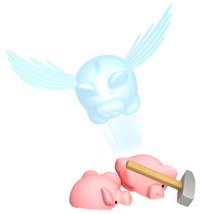 Just like the changes to the credit card rules back in February, July 1 started one big change to your checking account If you overdraw your checking account with a debit card transaction, your charge will be declined That’s the change If you are someone who keeps detailed records and knows what you have in your checking account this won’t affect you If you cut it close and it happens to you, you are in for a change Your transaction will be declined and you may be embarrassed at the register.
Just like the changes to the credit card rules back in February, July 1 started one big change to your checking account If you overdraw your checking account with a debit card transaction, your charge will be declined That’s the change If you are someone who keeps detailed records and knows what you have in your checking account this won’t affect you If you cut it close and it happens to you, you are in for a change Your transaction will be declined and you may be embarrassed at the register.
In the past, the banks were more than happy to let you overdraw your account They would receive the overdraft charge of $30 plus dollars This was a big revenue source for banks With this change, banks are offering you another option of overdraft protection This is associated with your checking account If you spend more than you have, you will be using the bank’s money as a loan to cover the additional amount needed You will have to repay the loan amount plus additional interest charges as incurred.
Know how much you have available in your checking account before you make a purchase and you will be fine.






